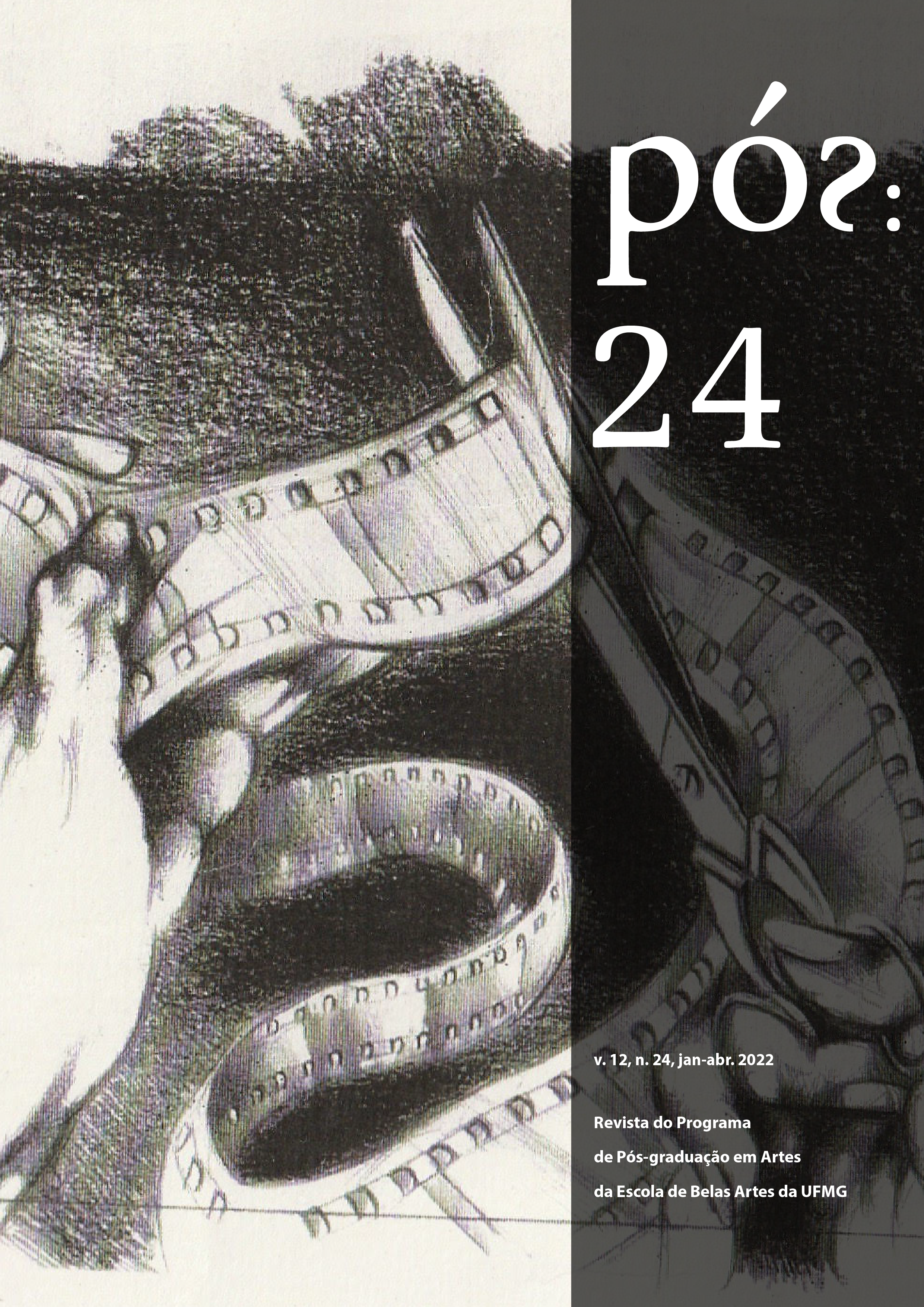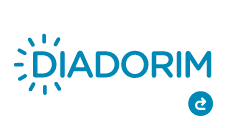Análisis estilístico y reverberaciones narrativas en O Ébrio (1946) de Gilda de Abreu
DOI:
https://doi.org/10.35699/2237-5864.2022.35071Palabras clave:
O Ébrio., Puesta en escena, EstiloResumen
El texto articula el análisis estilístico y el estudio de la narrativa de la película O Ébrio (1946) de Gilda de Abreu como factores compositivos de su sistema formal (BORDWELL; THOMPSON, 2013). Entrelazando los procedimientos técnicos recurrentes con determinadas elecciones narrativas, el artículo busca evaluarel papel que juega la puesta en escena y la edición al estilo de Ébrio y la construcción de significados dramáticos de la diégesis.
Descargas
Referencias
ABREU, Gilda de. O Ébrio. São Paulo: Cupolo, [194-?].
ADAMATTI, Margarida Maria. Caminhos cruzados entre intermidialidade, star system e música no Ébrio de Gilda de Abreu. In Texto, Porto Alegre, UFRGS, n. 42, p. 166-187, maio/ago. 2018.
ADAMATTI, Margarida Maria. Configurações espaciais entre teatro e cinema no filme O Ébrio. Revista Famecos,Porto Alegre, v. 27, p. 1-16, jan./dez. 2020.
ADAMATTI, Margarida Maria; UCHÔA, Fábio Raddi. Análise estilística e economia da montagem na Cinédia (1940-1946). In Texto, Porto Alegre, UFRGS, n. 53, p. 1-28, 2022.
ARISTÓTELES. Retórica. Lisboa: Biblioteca de autores clássicos/Imprensa nacional/Casa da Moeda, 2005. v. VIII, t. I.
AUMONT, Jacques. O cinema e a encenação. Lisboa: Edições Texto & Grafia, 2008.
AVELLAR, José Carlos. O Ébrio – de volta o cinema do tempo do rádio. Jornal do Brasil,Rio de Janeiro,23 ago. 1982.
BAZIN, André. O cinema:ensaios. São Paulo: Brasiliense, 1991.
BORDWELL, David. Figuras traçadas na luz: a encenação no cinema.Campinas: Papirus, 2008b.
BORDWELL, David. O cinema clássico hollywoodiano: normas e princípios narrativos. In: RAMOS, Fernão. Teoria contemporânea do cinema.São Paulo: Editora Senac São Paulo, 2005. v. 2. p. 277-300.
BORDWELL, David. Poetics of cinema. New York/London: Routledge, 2008a.
BORDWELL, David. Sobre a história do estilo cinematográfico. Campinas: Editora da Unicamp, 2013.
BORDWELL, David; STAIGER, Janet; THOMPSON, Kristin. The classical Hollywood cinema: film style& mode of production to 1960. London:Routledge, 2005.
BORDWELL, David; THOMPSON, Kristin. A arte do cinema: uma introdução. Campinas: Editora da Unicamp; São Paulo: Editora da USP, 2013.
CELESTINO, Vicente. O Ébrio – canção teatralizada. Biblioteca Nacional, 1941. [mimeo].
CELESTINO, Vicente. O Ébrio. Arquivo Miroel Silveira, 1947. [mimeo].
CELESTINO, Vicente. O Ébrio. São Paulo: RCA Victor, 1935.
GAUDREAULT, André; JOST, François. A narrativa cinematográfica. Brasília: Editora UnB, 2009.
GUERRA, Guido. Vicente Celestino, o hóspede das tempestades. Rio de Janeiro: Record, 1994.
O ÉBRIO. Direção: Gilda de Abreu. Rio de Janeiro: Cinédia, 1946. 1 DVD (125 min), son., p&b.OÉBRIO. Direção: José Castellar e Heloisa Castellar. São Paulo: TVPaulista, 1965-1966.Telenovela(75 capítulos).Baseada na peça teatral“OÉbrio”, de Vicente Celestino.
PAVIS, Patrice. Dicionário de teatro. São Paulo: Perspectiva, 2008.
SALT, Barry. Film style and technology: history and analysis. London: Starword, 2009.
SOARES, Angélica. Gêneros literários. São Paulo: Ática, 2007.
STAIGER, Emil. Conceitos fundamentais da poética. Rio de Janeiro: Tempo Brasileiro, 1977.XAVIER, Ismail. Entrevista com Ismail Xavier. Entrevista concedida a Mônica Almeida Kornis e Eduardo Morettin. Estudos Históricos, Rio de Janeiro, v. 26, n. 51, jan./jun. 2013.
Descargas
Publicado
Número
Sección
Licencia
Derechos de autor 2022 Margarida Maria Adamatti

Esta obra está bajo una licencia internacional Creative Commons Atribución-NoComercial 4.0.
Los autores que publican en esta revista aceptan los siguientes términos:
- Los autores conservan los derechos de autor y conceden a la revista el derecho de primera publicación, con el trabajo bajo la Licencia Creative Commons Attribution-NonCommercial 4.0 International License que permite compartir el trabajo con reconocimiento de autoría y publicación inicial en esta revista;
- Los autores pueden celebrar contratos adicionales por separado, para la distribución no exclusiva de la versión del trabajo publicado en esta revista (por ejemplo, publicar en un repositorio institucional o como capítulo de un libro), con reconocimiento de autoría y publicación inicial en esta revista.
- Se permite y anima a los autores a publicar y distribuir su trabajo en línea (por ejemplo, en repositorios institucionales o en su página personal) en cualquier momento antes o durante el proceso editorial, ya que esto puede generar cambios productivos, así como aumentar el impacto y la cita del trabajo publicado.
- Es responsabilidad de los autores obtener permiso escrito para utilizar en sus artículos materiales protegidos por la ley de derechos de autor. La Revista PÓS no se hace responsable de las violaciones de los derechos de autor de sus colaboradores.












